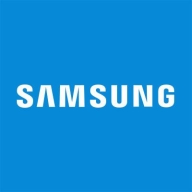

Microsoft Intune and Samsung Knox are leading competitors in the enterprise device management sector. Microsoft Intune appears to have an edge due to its integration with Microsoft's extensive ecosystem.
Features: Microsoft Intune offers extensive integration with Microsoft Office 365 and Azure, seamless management and policy deployment directly from the Azure console, and conditional access that enhances security measures. Samsung Knox excels in managing Samsung hardware, supporting features like remote locking and firmware updates without user involvement, ensuring high-level security.
Room for Improvement: Microsoft Intune could improve its reporting features, remote control for mobile devices, and Linux support. It also needs better synchronization for hybrid environments and enhanced MAM capabilities. Samsung Knox should expand its management capabilities to include non-Samsung devices, improve cross-device support, and broaden features to compete more directly with Intune.
Ease of Deployment and Customer Service: Microsoft Intune supports both public and hybrid cloud environments for more flexible deployment options, while Samsung Knox focuses more on on-premises solutions. Microsoft Intune's customer support can be slow and complex, whereas Samsung Knox is noted for its efficient and responsive support service.
Pricing and ROI: Microsoft Intune's inclusion in bundles like Office 365 makes it cost-effective for existing Microsoft customers, integrating smoothly into existing ecosystems. Samsung Knox offers competitive pricing and a free one-year license, appealing primarily to businesses using Samsung devices. Both solutions provide good ROI, though Microsoft's broader deployment options and integrations may offer better value.
| Product | Market Share (%) |
|---|---|
| Microsoft Intune | 31.3% |
| Samsung Knox | 5.9% |
| Other | 62.8% |


| Company Size | Count |
|---|---|
| Small Business | 116 |
| Midsize Enterprise | 46 |
| Large Enterprise | 152 |
| Company Size | Count |
|---|---|
| Small Business | 4 |
| Midsize Enterprise | 1 |
| Large Enterprise | 3 |
Microsoft Intune provides centralized management of mobile devices and applications, ensuring security, compliance, and productivity through integration with Microsoft services like Microsoft 365 and Azure Active Directory.
Organizations use Intune for managing mobile devices and applications, enhancing security and compliance across platforms. With features like single sign-on, conditional access, and zero-touch deployment via Autopilot, it facilitates efficient operations. Intune's scalability, easy enrollment, and capabilities such as remote wipe support diverse device management, offering robust data protection and efficient operation. Despite its features, improvement areas include reporting, compatibility with non-Microsoft devices, and better support for macOS and Linux devices.
What are the key features of Microsoft Intune?
What benefits should users look for in reviews?
In industries such as finance, healthcare, and education, Microsoft Intune is implemented to ensure secure and compliant device management. Companies leverage its capabilities to deploy security policies and manage both corporate-owned and BYOD environments, facilitating a unified approach to data protection and compliance.
Samsung Knox is a comprehensive security platform designed to protect mobile devices and data. It offers a suite of features tailored for enterprise use, ensuring robust security and management capabilities.
Samsung Knox provides a multilayered security framework for businesses, encompassing encryption, app management, and malware protection. It is integrated into Samsung devices, allowing IT admins to manage and secure fleets of smartphones and tablets seamlessly. Users benefit from simplified deployment and consistent updates that safeguard against emerging threats.
What are the most important features of Samsung Knox?Samsung Knox is widely adopted across industries such as healthcare, finance, and government. In healthcare, it secures patient data on mobile devices used by medical staff. Financial institutions use Knox to protect transaction information and customer details. Government agencies rely on its robust security for handling confidential communications and data.
We monitor all Enterprise Mobility Management (EMM) reviews to prevent fraudulent reviews and keep review quality high. We do not post reviews by company employees or direct competitors. We validate each review for authenticity via cross-reference with LinkedIn, and personal follow-up with the reviewer when necessary.